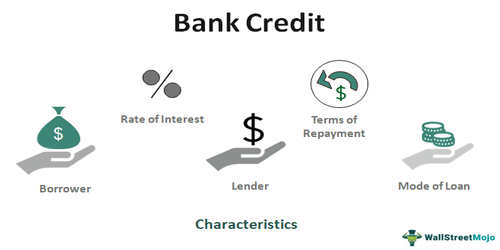Larger banks pool their resources to form what is known as a "bankers' bank." The charter banks that created bankers' banks are the primary beneficiaries of their existence. These organisations' banking services aren't available to the general public, but they're there to help smaller community banks.
Understanding the Bankers' Bank

It is possible for community banks to successfully compete with the larger financial organisations by utilising bankers' banks. There are just a few of these businesses in the entire country. 1 In 1975, Bloomington, Minnesota's United Bankers' Bank, became the state's first Bank.
Credit Unions and the Bankers' Bank
A bankers' Bank resembles a credit union in many respects. Although they are both viable options in the financial sector, they differ in structure and community benefits. In a credit union, members invest in the cooperative by purchasing shares. These membership buy-ins enable the credit union to provide its members with various financial services and products, such as loans and demand deposit accounts.
Banks and credit unions accept deposits, lend money, and provide their member's various financial services. In addition, there are significant variances in how each company generates revenue. The most crucial distinction between banks and credit unions is that banks exist to maximise profit for their shareholders, whereas credit unions exist to maximise value for their members.
An Illustration of a Banker's Bank

Bankers' Bank, headquartered in Madison, Wisconsin, is one such example. It used to be known as Bankers Bank Of Wisconsin until changing its name to Bankers' Bank in September 1993. This is a state-chartered organisation. Secondary mortgages, safeguarding, portfolio bookkeeping, lending alternatives to federal funds, cash letter processing for cash letters and municipal bond underwriting are only some items that Bankers' Bank currently provides. Bankers' Bank's objective is to "increase the value of community-based financial institutions by delivering the greatest quality goods and services at competitive price while giving a return to shareholders. "
Types of Bank Accounts: Banking Fundamentals
Among the most prevalent bank accounts are:
Savings account
Customers can put money into a savings account that they don't need immediately but that can be withdrawn at any time. The Bank then charges interest on the money it lends out to customers.
Checking Account
Customers may utilise a checking account to perform financial activities, such as paying their utility bills, with simplicity. Customers have several options for getting their money out of their savings account, including writing checks, using debit cards, or setting up automated transfers to another account.
Certificate Of Deposit
In a certificate of deposit, a specific sum of money is placed in a bank account and is guaranteed to be there for a particular amount of time. The funds retained earns interest at a specific rate.
How To Become a Banker?
The first step is to pick the banking profession you are most interested in and then work hard to improve your talents to move through the ranks.
Choosing a Pathway
Retail banks and credit unions all around the country, commercial bank divisions that focus on business requirements, investment banks that assist companies in obtaining money, and other sorts of organisations all employ people with your skill set and expertise.
Build Your Capabilities
To work in banking, you'll need to be proficient in math. Build a solid foundation in arithmetic, statistics, or business, but don't neglect to develop your "soft" talents. Getting an internship at a bank or financial services business is a great way to get experience and network with individuals who can help you further your career. Additionally, customer service and sales abilities are essential.
Achieve the Goal
A high school diploma or GED may be sufficient for a job as a teller, but a college degree is often required for a position in the personal banking sector. Getting a job or advancing in the financial services industry may need additional credentials such as a master's degree, specialisation, or licence.
Get Hired
Applying for vacant opportunities is simple, and it's a good technique for roles at the entry-level. In addition, if you think a bank or credit union would be a good fit for you, you can inquire about open positions by contacting them and making an appointment. The interview process is a great way to learn more about your career path and the industry. You'll also improve your interviewing abilities. Be as resourceful as possible when searching for more senior roles. By setting up informational interviews, you may learn more about job openings that haven't been posted yet.
Become a Leader and Expand Your Horizons
To be a personal banker and enjoy a lengthy career at the exact location is terrific. You can also progress into management or director positions or regulatory compliance or accounting if you have the drive. It is common for people to earn more money when they accept more significant duties.



